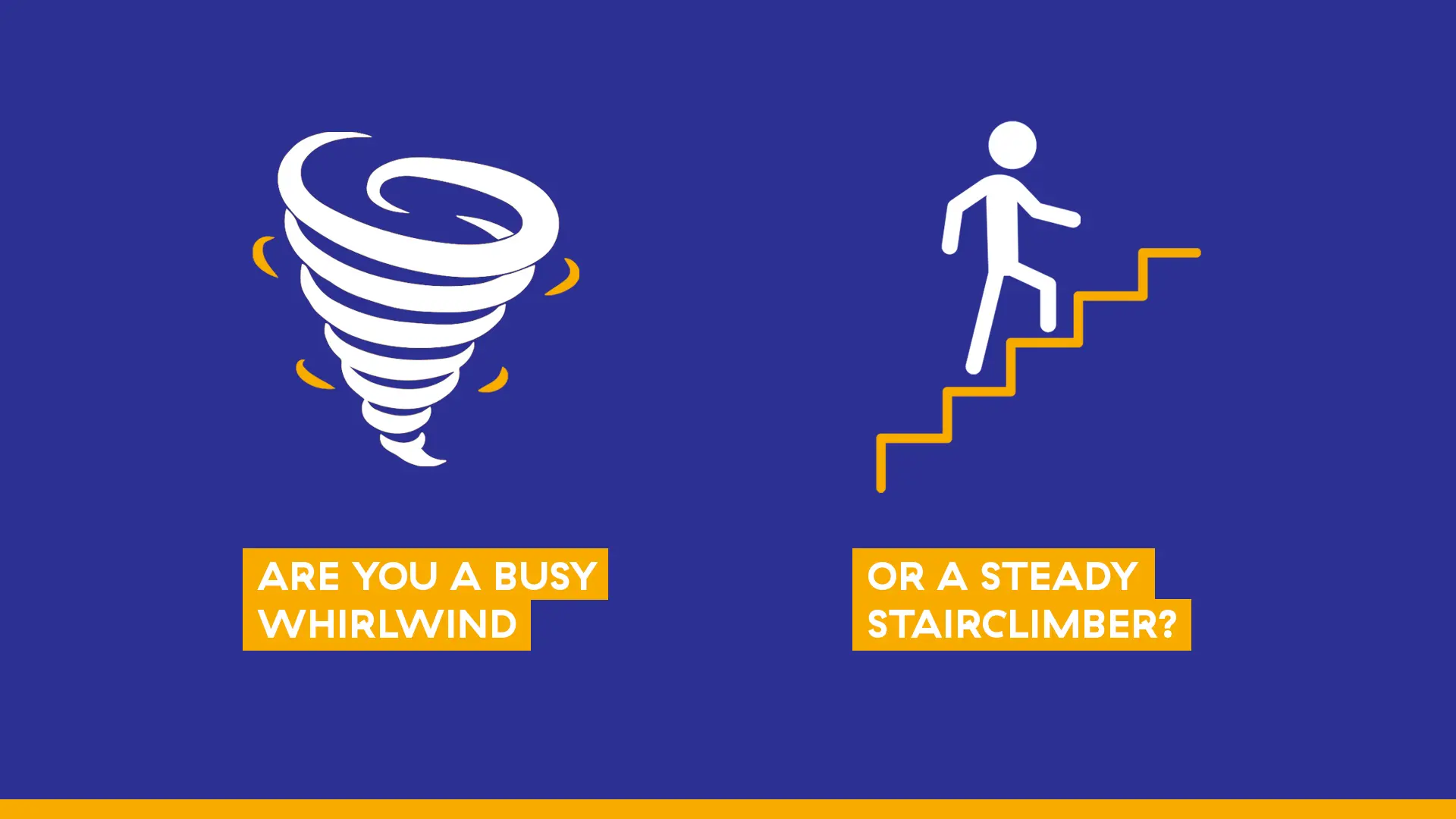Feeling stressed? With pressure coming from so many angles, it’s no wonder! Here’s how to manage stress as a student or at work.
Most people would nod if I said that the COVID pandemic has also resulted in a stress pandemic. For the last year and a half, people all over the world have faced pressure like never before.
Ask anyone over the age of 10 how they have been lately and the answer will probably be “So stressed! So busy!”
Stress is universal. The student is stressing about taking the test. The teacher is stressing about grading the test. Someone is stressing because they don’t like their job and have too much work to do. Someone else is stressing because they don’t have a job and never have enough money to pay their bills. I am stressing out about border closures and not being able to fly interstate to speak to students.
No matter what is going on in your life, there is some way to be stressed out by it!
The good news about stress is that you can harness it to work for you instead of against you. Here are some strategies that explain how to manage stress as a student, teacher or busy parent.
How to Manage Stress: 7 Strategies for Success
#1 Be Mindful
Mindfulness is important because it helps us to overcome emotional distress. When you feel stress, you need to stop and recognise it. This is your first step to not allowing it to impact your life in a negative way.
Here’s an insight that will give you food for thought:
“Psychologists use the term ‘coping’ to refer to a person’s behavioural, emotional, and cognitive responses to discomfort and stress. Endurance sports are largely about discomfort and stress; hence they are largely about coping. In a race, the job of the muscles is to perform. The job of the mind is to cope. But here’s the hitch: The muscles can only perform to the degree that the mind is able to cope.” (from “How Bad Do You Want It?: Mastering the Psychology of Mind Over Muscle” by Matt Fitzgerald)
As much as you need to work your body if you want to be fit and healthy, you need to work your mind so it can handle the stress that comes at it.
Once you have started to recognise stress, work on overcoming it. Take some deep breaths, write a list, do some stretches or be proactive and work through some tasks without letting yourself get distracted.
#2 Get Physical
We literally have access to a chemist within our own biology. Every time we contract our muscles we secrete chemicals which reduce stress, anxiety and inflammation. When we are active we are also able to access deep-seated feelings of bliss such as self-expression, social connection, autonomy and mastery.
In her book the Joy of Movement, Kelly McGonigal says, “The average daily step count required to induce feelings of anxiety and depression and decrease satisfaction with life is 5,649. The typical American takes 4,774 steps per day. Across the globe, the average is 4,961.” We all need to get moving. There is no need to push yourself through feelings of stress with the false solutions of coffee, alcohol or other drugs. If you really want to elevate your mood so you feel less worried about the things on your to-do list, head out and do some endorphin-releasing exercise in the fresh air.
#3 Avoid the “B word”
People say to me, “I know you must be incredibly busy.”
But I try to avoid this term. Busy to me implies I am out of control and have no sense of priorities.
Sometimes, people like to say they are busy because it also implies that they are important. It’s nice to feel needed after all. But the blanket term ‘busy’ is a cop out. Instead of rushing around every day feeling too busy to really get anything done, think about your priorities.
And instead of saying “I’m too busy” say “I can’t make that a priority right now.” This will help you focus on what’s important.
#4 Don’t be ruled by your emotions
Psychologist Dr Susan David said, “Emotions are data, not direction.”
You do not have to be at the mercy of your feelings or impulses. Responding wisely rather than acting blindly will help you thrive in all situations.
Being emotionally intelligent is the ability to identify, interpret and regulate your emotions in positive ways. When you are aware of what’s going on in your head rather than responding instinctively, you can relieve stress and anxiety, communicate effectively, empathise with others, overcome obstacles and mitigate conflict.
Here’s another insight from a well-recognised author:
“There are two main ways people respond to stress. The positive response is called a “mature defence” by George Vaillant, a psychiatrist who has studied the lives of successful and relatively unsuccessful Harvard graduates over a period of about thirty years; others call it “transformational coping.” The negative response to stress would be a “neurotic defence” or “regressive coping,” according to these models.” (from “Flow: The Psychology of Happiness” by Mihaly Csikszentmihalyi)
It’s up to you to control your thoughts so you can use stress as inspiration and motivation, not as an excuse.
#5 Get organised
Ever get so stressed you feel like you want to go home and kick the dog, scream at the cat and urinate in the fish bowl?
From assignments to presentations, it’s those days when you have deadlines looming and you haven’t made any progress that you feel the worst.
Stress is caused by disorganisation. While sometimes things happen that are out of our control, by being prepared ahead of time you will be able to sidestep at least some of the obstacles life has a way of throwing in our way.
Before you flop into bed, think about your priorities for the next day or week. Write them down and schedule them in your calendar so you’re not lying awake wondering how you are going to get everything done.
#6 Put the phone down!
Too many people are living in a heightened state of anxiety, panic and stress. There are lots of alarming things happening around the world and while we only used to have updates from the newspaper or 6 o’clock news, social media gives us the potential to have all those alarming updates in front of us all the time.
What’s more, instead of hearing about one thing locally we hear about 200 things happening all across the world. This puts our biology in a state of emergency because we don’t know how to calibrate all the information or which catastrophe is the one worth worrying about.
Set boundaries around your consumption of news and social media. This will help you to focus on what is important today.
#7 Help others to feel good
Where did we get the idea that if we make people feel worried and stressed then they will change?
Consider that tiny stress fractures can lead to total breakdown of the bones.
Soothe your own stress by being mindful of it, not passing it on. Create the environment you want to live in and others will follow your lead.
Stress is invisible. You can’t see or touch it. Stress is also indiscriminate, it affects the old and the young. It will find you regardless of your socio-economic standing or ethic background. We are all vulnerable to the reality of stress so remember that you are not alone in feeling the pressure so do what you can to support others on their journey to the other side of worry and anxiety.
Final thoughts
Many of us feel stressed because of the pressure to always perform at our best.
If you’re wondering how to manage stress as a student, teacher or parent, remember that no matter what is going on, you can transcend your current situation. There is more to you than has yet to be revealed and you are not going to exhaust your potential in your lifetime.
Even Olympic athletes look back with regret, wishing and wondering what would have happened if they had only trained harder. If you voluntarily confront things that stress you in a manageable way, you will get better at handling this area of your life.
If you turn around and confront what is scaring you instead of always trying to escape it, it will get smaller and you will get bigger. You feel better because you get more brave, not less afraid! Don’t get rid of your fear and stressful feelings, master it so it doesn’t become crippling.
Here is some feedback from a student after one of my recent presentations about how to manage stress as a student and work towards achieving your goals.
“Today you spoke at Sacred Heart and it was the single most inspiring 80 minutes of my life. I’ve been so unhappy recently with so much on my mind on top of the usual stresses of year 12. I have no idea what I want to do in my future as far as my career is concerned and lately I’ve been questioning the point in trying so hard with my studies – really just because of a lack of motivation. But today I left your seminar so inspired to do the best I can so that I can work to provide for my future family. I know for certain that I wasn’t the only one walking out of today bursting with excitement for the future. In a room full of usually rowdy year 12 students we were silent. Everyone was listening to your words. Although I haven’t been in the deeply unhappy frame of mind to even consider ending it all, I’m aware that there are friends and students around me facing depression and I’m sure that you got through to them with a message of hope also. Today was my turning point.”
Year 12 Sacred Heart College, Adelaide
Visit The Hopefull Institute blog for more insights on positivity and empowerment for students and adults.


